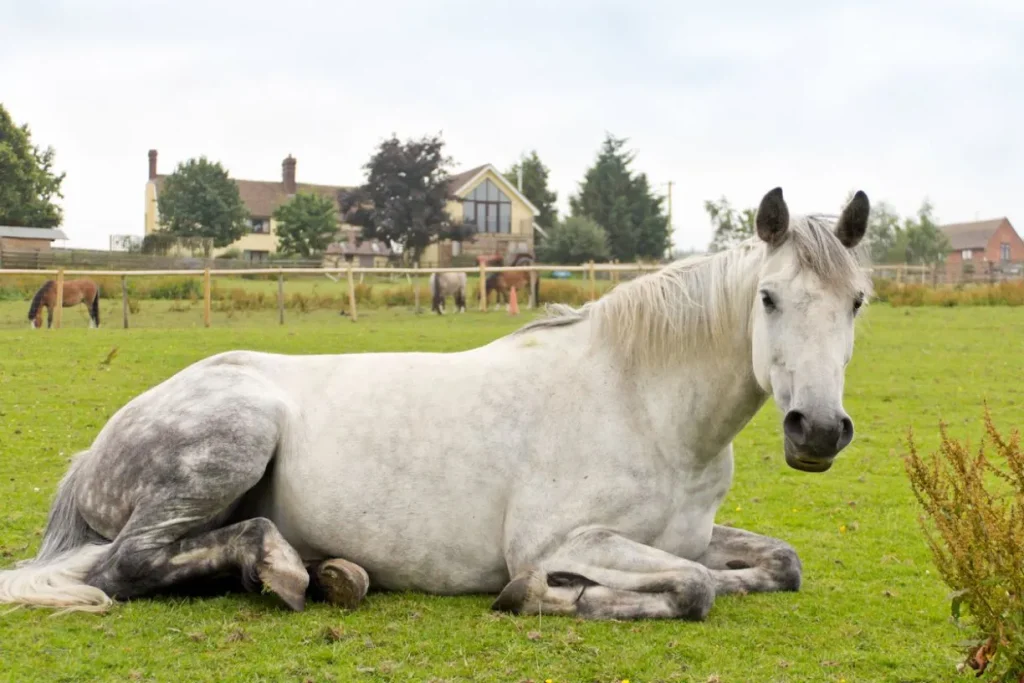How Do Horses Sleep?
Horses are fascinating creatures, and their sleeping habits are quite different from those of humans and many other animals. Understanding how horses sleep can help us provide better care for them and ensure their well-being. Let’s explore the unique aspects of equine sleep, including their sleeping patterns, behaviors, and the importance of rest for these magnificent animals.
Sleeping Patterns

Horses have a polyphasic sleep pattern, which means they sleep multiple times throughout the day and night rather than having a single long sleep period like humans. On average, horses need about 15 to 20 hours of rest each day, but they only spend about 2 to 4 hours in deep sleep.
Key Points About Horse Sleep:
- Light Sleep vs. Deep Sleep: Horses alternate between light and deep sleep. During light sleep, they can be easily awakened and may stand or lie down comfortably. Deep sleep, on the other hand, occurs when they are lying down, and their muscles are relaxed.
- Duration: While horses can nap while standing, they require deep sleep (which lasts about 30 minutes at a time) to recharge fully. This deep sleep is essential for physical and mental recovery.
Standing vs. Lying Down

Horses are unique in their ability to sleep while standing up. They possess a special locking mechanism in their legs that allows them to relax their muscles without falling over. This adaptation is a survival mechanism, enabling them to remain alert to predators while resting.
Important Notes:
- Safety: While horses can rest standing up, they still need to lie down for deep sleep. If a horse doesn’t get enough deep sleep, it can become stressed, irritable, and even physically unwell.
- Behavioral Signs: A horse that is not lying down to sleep may show signs of discomfort or anxiety. Conversely, if a horse is lying down for extended periods, it might indicate an underlying health issue.
Sleep Environment

Creating a comfortable and safe environment is crucial for a horse’s ability to rest well. Factors to consider include:
- Bedding: Soft bedding like straw or shavings encourages horses to lie down and rest comfortably.
- Space: Ample space in the stall or pasture allows horses to move freely and find a comfortable resting position.
- Familiarity: Horses feel more secure in familiar surroundings, so maintaining a consistent environment can promote better sleep.
Sleep Cycles and Behavior
Horses have distinct sleep cycles, and their behavior can vary based on time of day, environment, and social dynamics.
- Day vs. Night: Horses are crepuscular animals, meaning they are most active during dawn and dusk. They tend to sleep more during the day and are more alert at night, though this can vary based on individual preferences and conditions.
- Social Sleep: In herds, horses often sleep while standing and take turns resting. This social behavior enhances their safety, as one or more horses remain alert while others sleep.
Importance of Sleep
Sleep is vital for a horse’s overall health and well-being. Lack of adequate sleep can lead to a range of issues, including:
- Physical Health: Sleep helps in muscle recovery and overall physical health. Without enough rest, horses can develop fatigue and be more susceptible to injuries.
- Mental Health: Just like humans, horses can experience stress and anxiety if they don’t get enough sleep. This can lead to behavioral issues, such as irritability and difficulty concentrating.
Conclusion
Understanding how horses sleep is essential for their care and management. Providing a safe, comfortable environment, recognizing their unique sleep patterns, and ensuring they have the opportunity to rest properly can greatly enhance their health and happiness.
By respecting their natural behaviors and needs, we can create a nurturing environment that allows our equine friends to thrive. Whether they’re standing alert or lying down in deep sleep, horses deserve the best care to ensure they can rest well and remain healthy.
More Popular Search




